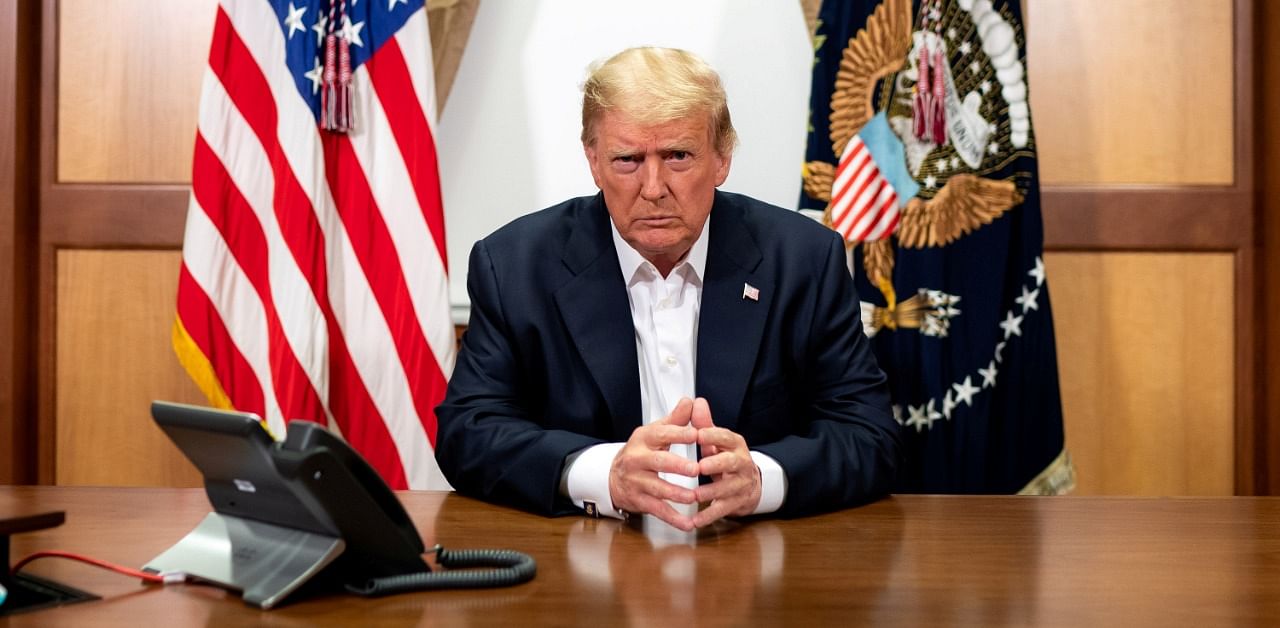
It's a month before Election Day and President Donald Trump is in the hospital, infected with a virus that has killed more than 2,09,000 Americans.
What happens in the election — already well underway — should his condition take a turn for the worse? If the President is unable to serve, through illness or death, the 25th Amendment makes clear the powers of the presidency transfer to Vice President Mike Pence until the President regains the ability to perform his duties.
But what happens if a candidate for president dies before Election Day? Or right after? What happens if the winning candidate dies before Inauguration Day? It's never happened in a country with a long transition between Election Day at the start of November and the start of a president's new term on January 20.
The Constitution, as well as state and federal election laws, would help guide the country through the process.
But with no precedent, the outcome is far from certain. The House of Representatives has the final say on who wins the presidency.
Before the House might have to take charge, there are roles for political parties, state legislatures, the Electoral College, the courts and, most importantly, voters.
Here are some questions and answers about what might happen if a presidential candidate dies, before or after the election: Can Political Parties Replace a Candidate who dies?
Yes, but not this close to Election Day. Nearly 63 million ballots have already been sent to voters, with nearly 3 million votes already cast.
The deadline for candidates to withdraw has passed in all but two states — South Carolina and Connecticut — and their deadlines are a few days away.
The date of the election is set by federal law — the Tuesday after the first Monday in November — which falls this year on November 3.
Only Congress can change the date of the election.
“It would be impossible to change ballots at this time without delaying the election and starting the voting process over again," said Richard Hasan, a law professor at the University of California–Irvine School of Law.
“I don't think Congress is going to do that."
But it's important to remember that in a presidential election, voters aren't actually casting ballots for candidates.
Instead, they are voting for slates of electors who will pick the president and vice president as members of the Electoral College.
To win the presidency, a candidate must win the backing of a majority of electors — 270 — in the Electoral College.
In modern US elections, the meeting of the Electoral College is essentially a ceremonial confirmation of the choice made by voters.
This year, it will take place on December 14.
But if the winning candidate is no longer alive, it would be anything but routine.
"The question is, Who would the electors support?” said Richard Pildes, a constitutional law professor at New York University.
The 20th Amendment says the term of the current president and vice president ends at noon on January 20.
There is no provision to extend it.
The amendment also says if the president-elect dies, the vice president-elect shall be sworn in as president at the start of the new term.
However, the winning candidate doesn't become president-elect until a joint session of Congress counts the votes from the Electoral College and declares a winner, Pildes said.
By law, Congress is scheduled to formally receive the votes from the Electoral College on January 6.
The new Congress, which will be elected in November and sworn into office on January 3, will preside.
“That's the worst, most confusing time,” said John Fortier, director of governmental studies at the Bipartisan Policy Center.
“They are going to have to figure out what to do with (Electoral College) votes cast for a candidate who has died.”
If the winning candidate dies before the Electoral College meets, the electors could coalesce around a replacement candidate recommended by the party, perhaps the vice-presidential candidate.
“For the most part, these people are picked because they are loyal party people," Fortier said.
“You could have a few stray here or there, but they are not rebels.”
A party's electors would have an incentive to coalesce around one candidate, he said, because they wouldn't want to risk throwing the election to the other party.
But there is no guarantee they would all agree on a replacement candidate.
Some states have laws that require electors to vote for the presidential candidate who won the statewide vote; other states could quickly pass laws governing the electors in the event that a candidate dies.
“The party can say what the party wants, but the states would decide what to do with those electors,” Hasan said.
The Supreme Court ruled unanimously in July that states may require electors to support the candidate picked by voters in the election. However, the court left open what would happen if the candidate dies.
“Nothing in this opinion should be taken to permit the states to bind electors to a deceased candidate," Justice Elena Kagan wrote in a footnote to her majority opinion. If this happens, expect litigation.
The 12th Amendment to the Constitution gives Congress the final say on who is elected president and vice president.
Congress decides whether to accept or reject slates of electors from the Electoral College and to determine whether a candidate has won the required 270 electoral votes to become president.